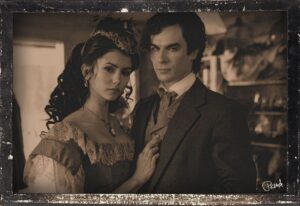By GRAHAM FULLER
IN Andrea Arnold’s new film, “Fish Tank,” an unsmiling 15-year-old named Mia (Katie Jarvis), who lives in a housing project in Essex, in England, becomes close to the boyfriend of her uncaring mother. The man, an Irish charmer named Connor, played by Michael Fassbender, gives her money and lends her his video camera so that she can tape herself dancing to hip-hop. It soon becomes apparent that the relationship between Mia and Connor is becoming dangerously intimate.
Ms. Arnold shot “Fish Tank” in a raw, nonjudgmental and observational style with plenty of hand-held camerawork. The film, which was in the United States on Friday, is recognizably the work of the same unflinching filmmaker who made “Red Road” (2006) and “Wasp,” which won the 2005 Oscar for best live-action short. The consistent look and the working-class milieu of Ms. Arnold’s films align them with the three British directors most associated with social realism: Ken Loach, Mike Leigh and Alan Clarke, who died in 1990.
The difficulties in Britain of raising money to make films prohibits cohesive movements in the national cinema, and like other directors who have worked in a social realist style including Gary Oldman (the actor, who directed “Nil by Mouth”), Carine Adler (“Under the Skin”), Lynne Ramsay (“Ratcatcher”) and Duane Hopkins (“Better Things”) Ms. Arnold is something of a lone voice. Her reputation as an auteur could come to rest on whether her films successfully harness her chosen style to express social themes, or whether they are merely anecdotes that look like Mr. Loach’s films.
Ms. Arnold admits to being a fan of Mr. Loach, but is hesitant about making claims for herself as a social realist. “I guess I am,” she allowed during a recent telephone interview. “When people have suggested it, I’ve said, ‘Oh, am I?’ I know it sounds kind of mad, but I just get on and make my films in my own way as best I can. I’m not aware that I’m joining any group. I know that all the people that have made similar films in the past paved the way for me to be able to do it, and I’m obviously influenced by what came before, but I’m not that conscious of it.”
The subject had come up when it was mentioned to Ms. Arnold that a letter published in the British cinema magazine Sight & Sound had ridiculed the notion that she belongs in the same company as Mr. Loach, and went on to claim that “Fish Tank” “offers little insight into social relations, precisely because it isn’t grounded in reality.” The letter went on to accuse “Fish Tank” of “self-satisfied issue-skirting.”
Ms. Arnold, who hadn’t read the letter, responded cautiously when told about it. “I write what I know about, what I understand,” she said. “Usually when I start writing, I don’t have an intellectual idea about it, I just write about the characters as truthfully as I can, using my imagination.
“I hear filmmakers saying, ‘I wanted to make to make a film about this issue, or this theme,’ but I never start like that,” she said. “I always think from the image or from the character outwards. And usually the image has got a character that I can then go and explore.”
Nick James, the editor of Sight & Sound, nonetheless views her films within a context. “Without a doubt both ‘Red Road’ and ‘Fish Tank’ come from the British social realist tradition,” Mr. James said via e-mail. “But it’s a more semi-poetic strain arguably than that explored by Loach, who is nonetheless the godfather of Arnold’s generation of British filmmakers.”
Despite Ms. Arnold’s admission that her films are not issue driven, her characters move in a socially challenged world. In “Red Road” a Glasgow woman, Jackie (Kate Dickie), who monitors public closed-circuit video screens, stalks the former addict who killed her husband and child in a driving accident and infiltrates the threatening high-rise where he lives. There she meets an indigent young couple and seduces her quarry in order to incriminate him as a rapist. Although a tale of revenge, the film leaves an impression of underprivileged people living in quiet desperation.
“Fish Tank” was clearly named for Mia’s entrapment in the high-rise where she lives, but Ms. Arnold who was raised in public housing in Dartford, Kent refuses to condemn the apartments where Mia’s family lives. “Some people have said to me, ‘Oh, that bleak estate,’ but I think it’s very normal,” Ms. Arnold said. “Probably in Britain there are more people living like that than there are living in nice Victorian terraced houses. I tried to make the sound design of the film a celebration of the people living on that estate enjoying themselves. There’re all kinds of things in the film that counteract a bleak picture.”
Asked why she shoots in a realistic style, Ms. Arnold said: “I want to make it feel like we’ve dropped in on some people’s lives. With a lot of films, people are sitting on the outside looking in, but I want the audience to get a bit more intimately involved with what’s going on, so that they maybe can experience it a little bit more intensely.”
This can sometimes collide with ideas about social realism. Both “Red Road” and “Fish Tank” turn into morally complex revenge dramas. “Most social realist films are genre films in disguise,” Mr. James observed. “Loach’s films are all melodramas, the Dardennes brothers’ films are often played-down thrillers.” Mia’s drastic response to her altered circumstances at the climax of “Fish Tank” “takes the film to another level of metaphor and meaning,” he said. “Neither enhances the sense of realism.”
Nor does Ms. Arnold’s use of lyricism, typified by two scenes in which Connor carries Mia. First he lifts her from her mother’s bed as she feigns sleep and takes her into her own room. Later she cuts her foot, and he gives her a piggyback ride to his car. Both sequences enter a dreamy erotic space, Ms. Arnold focusing on Mia’s unspoken reaction to physical contact with Connor.
“I was constantly trying to find a way to feel what she’s thinking, and experimented with those moments to try and find that place,” Ms. Arnold said. “If I’d been thinking, ‘I’m going to make a social realist film,’ then perhaps I wouldn’t have done things like that and something would have been lost.”















+ There are no comments
Add yours